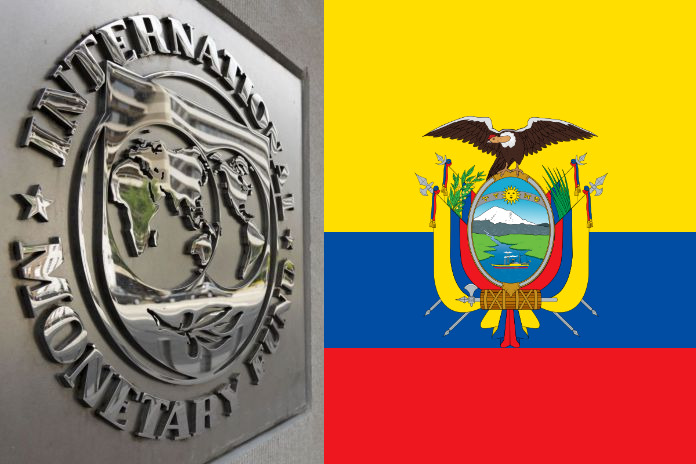- The IMF executive board approved a new 48-month arrangement under the Extended Fund Facility (EFF) for Ecuador, with access equivalent to US$4 billion. The Board’s decision allows the authorities an immediate disbursement equivalent to US$1 billion.
- The program aims to support Ecuador’s policies to stabilize the economy, safeguard dollarization, and lay the foundations for sustainable and inclusive growth.
- Key elements of the authorities’ policy agenda include cementing fiscal and debt sustainability, expanding the social safety net, enhancing financial sector resilience, and further strengthening transparency and governance.
WASHINGTON, USA – The executive board of the International Monetary Fund (IMF) approved today a 48-month extended arrangement under the Extended Fund Facility (EFF) for Ecuador, with access equivalent to SDR 3 billion (430 percent of quota, equivalent to US$4 billion). The board’s approval allows the authorities an immediate disbursement of SDR 753 million, equivalent to US$1 billion, available to the public budget. This follows a previous EFF arrangement approved by the IMF executive board in September 2020 and completed in December 2022.
The Ecuadorian authorities have put together a robust plan and have started to take important policy steps to address the liquidity and fiscal situation. The IMF-supported program will build on these steps to strengthen fiscal and debt sustainability, protect vulnerable groups, rebuild liquidity buffers, safeguard macroeconomic and financial stability, and advance the structural reform agenda to lay the foundations for sustainable, inclusive, and stronger growth that benefits all Ecuadorians.
Following the executive board’s discussion on Ecuador, Kristalina Georgieva, managing director and chair, issued the following statement:
“The Ecuadorian authorities have undertaken swift and bold actions to tackle the fiscal and security crises. The IMF-supported arrangement under the Extended Fund Facility, which incorporates lessons from the earlier Fund arrangement, will support the authorities’ policy plans to strengthen fiscal sustainability and protect vulnerable groups, safeguard dollarization and macroeconomic stability, rebuild liquidity buffers, enhance financial stability and integrity, and further advance the structural reform agenda to promote sustainable and inclusive growth. Strong commitment to the program and steadfast reform implementation will be critical for success. Continued engagement with official creditors and development partners, contingency planning, and a strong communication of the program’s objectives to the public will also be important.
“The authorities are committed to implementing an ambitious fiscal consolidation plan, which will help mitigate Ecuador’s structural fiscal vulnerabilities and cement fiscal sustainability over the medium term. It envisages balanced efforts on both the revenue and expenditure sides, with less reliance on oil sector developments, while protecting essential spending on security, the social safety net, and public investment.
“Work will continue to enhance the social safety net by expanding the coverage of cash transfer programs to families in need. This will help mitigate the adverse impact of fiscal consolidation on those vulnerable groups.
“Building on the recommendations of the IMF’s Financial Sector Stability Assessment for Ecuador, the financial policy agenda aims to strengthen financial sector oversight and coordination among relevant agencies, enhance the prudential framework governing capital and liquidity, and foster financial deepening and capital market development.
“The authorities are committed to continuing to strengthen their institutional framework by enhancing governance, transparency, public financial management, and public procurement. This will include advancing the audits of the state-owned oil company and healthcare expenditure, clearing arrears and improving cash management practices, and making progress with key AML/CFT legislation.”





